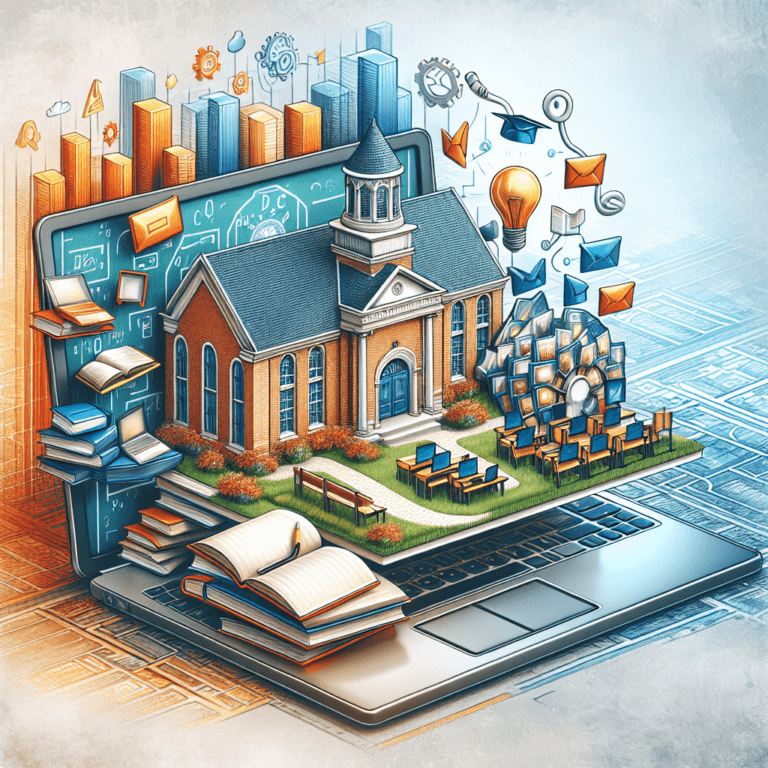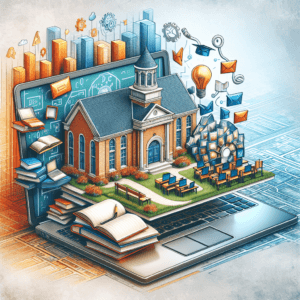The Impact of Online Learning on Traditional University Models
The rise of online learning has significantly transformed the landscape of education, challenging the long-standing conventions of traditional university models. With the advent of technology and the internet, educational institutions face both opportunities and challenges that force them to reevaluate their roles and strategies in the learning ecosystem.
Expanding Access to Education
One of the most profound impacts of online learning has been the increased accessibility of education. Students from diverse backgrounds, including those living in remote areas or who have demanding work schedules, can now access high-quality courses from renowned universities that would otherwise be out of reach. This democratisation of knowledge allows for a broader range of voices and perspectives within academic discourse.
Traditional universities, once limited by geographical constraints, now compete with online platforms that offer flexible learning schedules. The ability to pursue degrees and certifications online means that non-traditional students—such as working professionals and parents—can engage with higher education in ways that fit their lifestyles. This shift prompts universities to reconsider how they can make on-campus education more relevant and adaptable to student needs.
Reshaping Pedagogical Approaches
Online learning methodologies have led to new instructional methods that shift the focus from passive consumption of information to active participation. Traditional lecture-based models, often characterised by one-way communication from instructor to student, are giving way to more interactive formats. Instructors are increasingly incorporating elements like multimedia content, discussion forums, and collaborative projects to engage students effectively.
As traditional universities adopt these innovative teaching strategies, they must also grapple with the challenge of maintaining academic integrity and personal connection in a digitally-mediated environment. Balancing the benefits of flexibility and accessibility with the need for a robust academic experience is a continuous conversation within educational institutions.
Financial Implications
The financial dynamics of higher education are also being reshaped by the rise of online learning. For many institutions, the shift toward digital education means reconsidering tuition models and funding structures. Online programs typically operate at lower overhead costs than their on-campus counterparts. This cost-efficiency can result in lower tuition rates, making education more attainable for students.
However, traditional universities may face financial pressure as prospective students evaluate the cost-benefit ratio of online versus on-campus programs. As competition increases among institutions to attract and retain students, universities might need to rethink not only their pricing but also the value propositions they provide to potential enrollees.
Challenges to Institutional Identity
The expansion of online learning raises questions regarding the identity and purpose of traditional universities. As more students opt for online degrees, institutions must consider how to maintain their reputations and the unique value they bring compared to alternative educational models. While online programs can offer flexibility and convenience, the traditional campus experience—a place for personal development, networking, and community engagement—remains a compelling aspect of higher education.
Consequently, universities are beginning to hybridise their offerings, blending online and in-person instruction to create a comprehensive educational experience. This approach attempts to harness the advantages of both modalities, allowing students to enjoy the social aspects of campus life while benefiting from the convenience of online coursework.
The Future of Higher Education
As online learning continues to evolve, traditional universities must adapt to an ever-changing educational landscape. The integration of technology, evolving student needs, and market dynamics will reshape institutional strategies moving forward.
The ongoing dialogue about the role and purpose of higher education will likely persist, as both students and educators seek to define what a university should provide in the current era. Embracing innovation while preserving core values will be crucial for universities striving to remain relevant and impactful.
In conclusion, online learning has undeniably influenced traditional university models, prompting a reevaluation of teaching methods, accessibility, financial structures, and institutional identities. As educational paradigms shift, the future of higher education will rest on the ability of universities to adapt, innovate, and uphold their commitment to providing meaningful learning experiences.
university education,#Impact #Online #Learning #Traditional #University #Models







